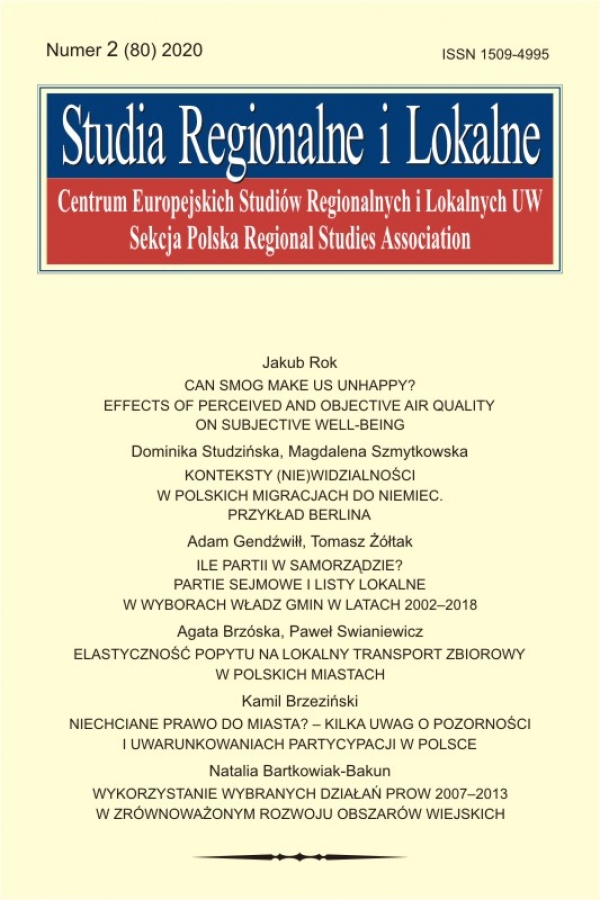Issue:
2(80)/2020
Dominika Studzińska, Magdalena Szmytkowska
Dimensions of (in)visibility in the context of Polish migration to Germany. The case of Berlin
DOI: 10.7366/1509499528002
Konteksty (nie)widzialności w polskich migracjach do Niemiec. Przykład Berlina
Wraz ze zmieniającymi się uwarunkowaniami migracji Polaków do Niemiec również przypisana im niewidzialność wykazuje znamienną ewolucję: od intencjonalnego ukrywania się do świadomego wtapiania się w lokalne struktury społeczno-przestrzenne. Szczególnym laboratorium różnorodności zachowań społecznych polskich migrantów jest Berlin, uchodzący za wielokulturową metropolię, przyciągający nowych obywateli, nie tylko w celach zarobkowych, ale coraz częściej – samorealizacji. O ile niewidzialność migrantów zarobkowych wynika raczej z wyobcowania w nowym kraju, o tyle przedstawiciele lifestyle migration świadomie wtapiają się i integrują z różnorodną kulturowo społecznością berlińską. Celem artykułu jest identyfikacja obecności i form codziennego funkcjonowania polskich migrantów w Berlinie w kontekście niewidzialności
Dimensions of (in)visibility in the context of Polish migration to Germany. The case of Berlin
Along with time-related changes in the migration of Poles to Germany, the invisibility that has been ascribed to them has also evolved: from intentional hiding to deliberate merging into local social and spatial structures. The city of Berlin, perceived as an open, modern and multicultural metropolis, is an exceptional laboratory of transformations and diversity of social behaviours shown by Polish migrants. It attracts new citizens who not only want to make a living here, but also – and more frequently – to achieve self-fulfilment. While the invisibility of the economic migrants is mainly a result of their alienation in a new country, the representatives of lifestyle migration deliberately merge into the culturally diverse society of Berlin and they try to identify with other social groups. The aim of this article is to identify the existence and forms of every-day functioning of Polish migrants in Berlin in the context of invisibility.
Affiliation:
Dominika Studzińska: Uniwersytet Gdański, Wydział Oceanografii i Geografii, Zakład Geografii Społeczno-Ekonomicznej, ul. Bażyńskiego 4, 80-309 Gdańsk; ORCID: 0000-0002-9779-223X;
dominika.studzinska@ug.edu.pl Magdalena Szmytkowska: Uniwersytet Gdański, Wydział Oceanografii i Geografii, Zakład Geografii Społeczno-Ekonomicznej, ul. Bażyńskiego 4, 80-309 Gdańsk; ORCID: 0000-0002-1504-6832;
magdalena.szmytkowska@ug.edu.pl 


